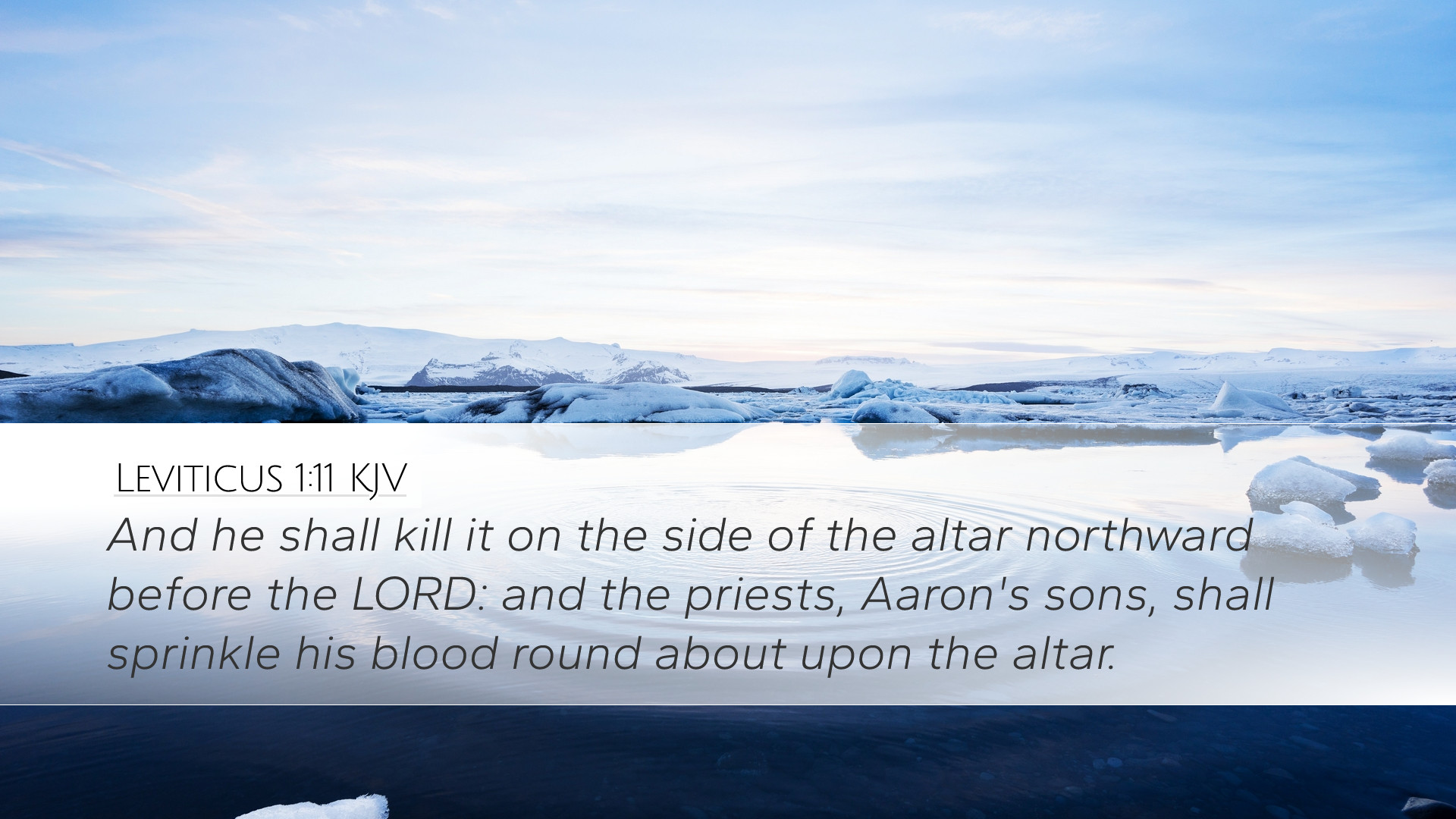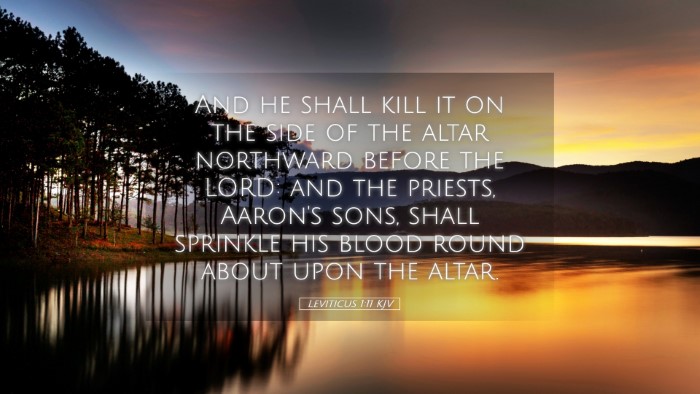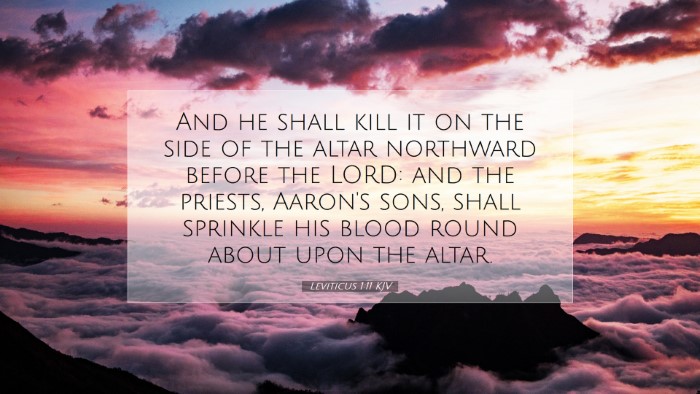Commentary on Leviticus 1:11
Verse: "And he shall kill it on the side of the altar northward before the Lord: and the priests, Aaron's sons, shall sprinkle his blood round about upon the altar."
Introduction
Leviticus 1:11 details the specific instructions regarding the offering of a bullock as a sacrifice. This verse is situated within the framework of the sacrificial system established in the Mosaic Law, emphasizing nuances in ritual practice that were foundational for Israelite worship. Through this, we gain insights into the seriousness of sin, the method of atonement, and the holiness required in approaching God.
The Significance of Location
Matthew Henry emphasizes the importance of the altar's location, noting that the sacrifice is to be killed on the northern side of the altar. This location is significant symbolically and theologically:
- Symbol of Purity: The north was often associated with judgment, as it signifies the direction from which calamity could come (Jeremiah 1:14).
- Holiness of the Offering: Sacrifices were to be performed in a manner that highlighted the holiness of God, reminding the worshippers of the gravity of sin.
The Action of Killing the Sacrifice
Albert Barnes highlights the procedural aspect of killing the animal, indicating that the act of slaughtering the sacrifice was no mere ritual but represented the gravity of sin. The act of killing symbolized the transfer of sin onto the innocent beast, which stood as a substitute for the sinner:
- Substitutionary Atonement: This concept runs throughout the sacrificial system, showcasing God's provision for the forgiveness of sins.
- Personal Responsibility: The worshipper personally engaged in this act, which served as a poignant reminder of the cost of sin.
The Role of the Priests
Adam Clarke elucidates the role of the priests mentioned in this verse, stating the essential function of Aaron's sons in the sacrificial system:
- Intermediaries: The priests acted as mediators between God and the people, upholding the sanctity of worship.
- Handling the Blood: The instruction to sprinkle blood indicates that the life of the creature, represented by its blood, is central to atonement (Leviticus 17:11).
The Symbolism of Blood
The phrase "sprinkle his blood round about upon the altar" underlines the significance of blood in biblical theology. Matthew Henry remarks on the profound nature of blood as a symbol of life, essential for understanding atonement:
- Life in the Blood: Blood is often seen as the life force; thus, the shedding of blood reflects the seriousness of sin and its consequences (Romans 6:23).
- Consecration of the Altar: By sprinkling blood, the altar is consecrated, indicating the means by which the people could have access to God.
Theological Implications
This verse offers rich theological implications relevant across both the Old and New Testaments:
- Foreshadowing of Christ: Modern theological perspectives often draw parallels between these sacrificial practices and the ultimate sacrifice of Christ, who was without blemish and took on the sin of the world (Hebrews 9:12).
- Understanding Holiness: The meticulous nature of the sacrificial process teaches contemporary believers about the holiness of God and the reverence needed in worship.
- Approaching God: The necessity of sacrifice embodies the reality that sin creates separation from God, emphasizing the importance of atonement.
Conclusion
Leviticus 1:11 encapsulates the essence of the sacrificial system, representing key elements of sacrifice, holiness, and the necessity of atonement. For pastors, students, theologians, and scholars, this verse serves as a critical foundation for understanding both the Old Testament practices and the fulfillment of such practices in the New Testament through Christ's sacrifice.
Consideration of these elements encourages deeper reflection on the nature of sin, the character of God, and the beauty of redemption inherent in the narrative of Scripture.


